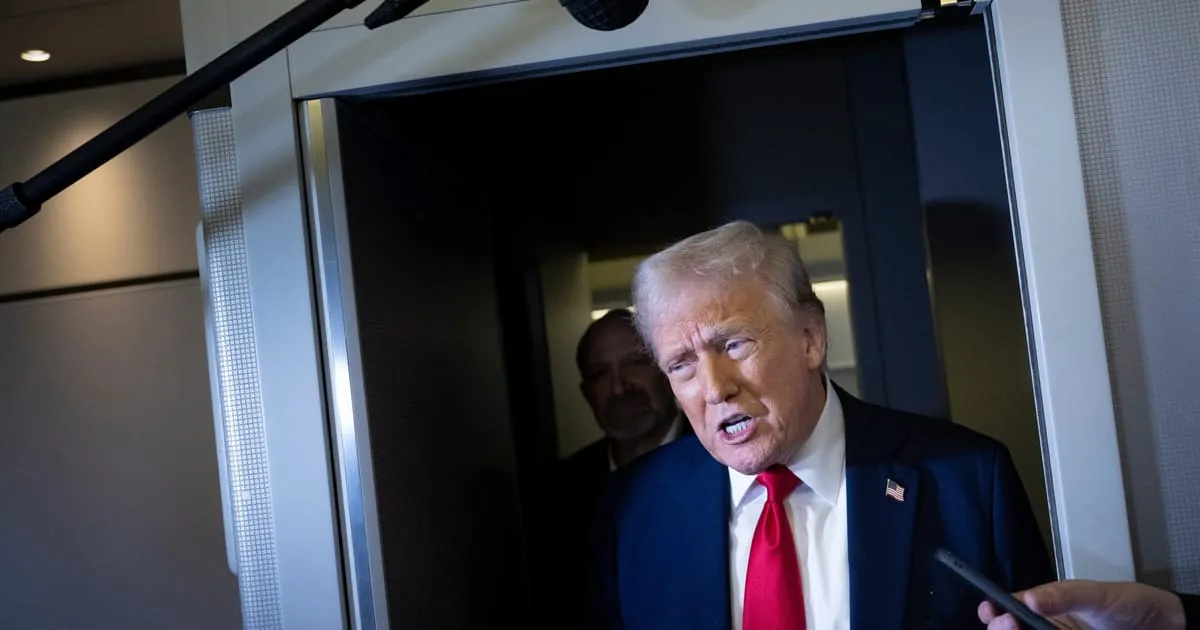
In a recent statement, former President Donald Trump revealed that Ukrainian President Volodymyr Zelenskyy is attempting to “back out” of a significant minerals agreement with the United States. During a conversation with reporters aboard Air Force One, Trump expressed his concerns, saying, “I think Zelenskyy, by the way, he’s trying to back out of the rare earth deal, and if he does that, he’s got some problems — big, big problems.”
Trump further elaborated on the situation, stating, “We made a deal on rare earths, and now he’s saying, ‘Well, you know, I want to renegotiate the deal.’ He wants to be a member of NATO. Well, he was never going to be a member of NATO. He understands that, so, if he’s looking to renegotiate the deal, he’s got big problems.” This statement underscores the tension surrounding U.S.-Ukraine relations and the implications of this minerals agreement.
In light of these developments, President Zelenskyy emphasized during a press conference in Kyiv on Friday that Ukraine will not accept any minerals agreement that jeopardizes its aspirations for European Union accession. “Nothing that could endanger … Ukraine’s accession to the EU can be accepted,” he asserted, highlighting the delicate balance Ukraine seeks to maintain between its geopolitical aspirations and economic agreements.
Ukrainian Foreign Minister Andrii Sybiha reinforced this stance on Sunday, stating, “We can see this Russian strategy and will never accept anything that leaves Ukraine weak or defenseless.” He added, “To the contrary, a real and fair peace requires strong and long-term security guarantees to preserve it.” This declaration emphasizes Ukraine’s commitment to national strength and security as it navigates complex international agreements.
The recent discourse comes in the wake of Washington’s latest minerals offer to Kyiv, which grants the United States access to Ukraine’s oil, gas, and minerals through a joint investment fund. This fund is designed to split the revenue of these projects between the two nations. However, Zelenskyy noted that the latest draft of the agreement included “many new provisions that were not previously discussed,” along with “some aspects that had already been rejected by both sides,” according to reports from Ukrainian media outlets.
Furthermore, Bloomberg reported that Ukraine intends to request modifications to the deal, focusing on ensuring a greater commitment from the U.S. for investment and seeking clarifications on the operational mechanics of the proposed joint reconstruction fund. This indicates Ukraine's strategic approach to negotiating terms that align with its national interests.
Amid this backdrop, Russian state media has indicated that Moscow and Washington have initiated discussions regarding their own rare earth minerals deal. Kirill Dmitriev, Putin’s envoy on international economic and investment cooperation, stated, “Rare earth metals are an important area for cooperation, and we have certainly started discussions about various rare earth metals and projects in Russia.” This signals a potential shift in the geopolitical landscape as both nations vie for influence over valuable mineral resources.
Originally, the U.S. and Ukraine were expected to finalize the minerals deal on February 28. However, this agreement fell through after a public disagreement in the White House, during which U.S. Vice President JD Vance accused Zelenskyy of being ungrateful. This incident highlights the complexities and challenges that continue to shape U.S.-Ukraine relations as both countries work towards mutually beneficial agreements.